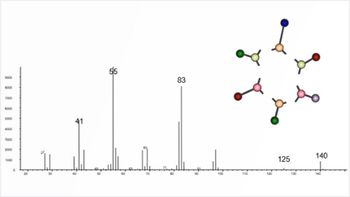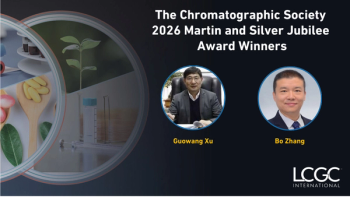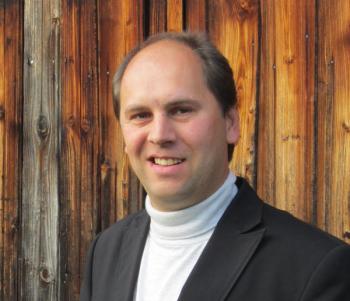
ISC 2024: An Interview with Alexandre Goyon
As part of our ISC 2024 coverage, we recently interviewed Alexandre Goyon of Genentech about his research and his being awarded our Rising Stars of Separation Science Award for Outstanding Achievement in Pharmaceutical Analysis.
During the 34th International Symposium on Chromatography, which takes place from October 6–10, 2024 in Liverpool, UK, various scientists are honored for their contributions to the analytical chemistry community. This year, LCGC International was honored to present Alexandre Goyon of Genentech with our Rising Stars of Separation Science Award for Outstanding Achievement in Pharmaceutical Analysis, sponsored by VUV Analytics.
Goyon is a Principal Scientist in the Synthetic Molecule Pharmaceutical Sciences Organization at Genentech, where he specializes in developing advanced analytical methods to support new drug modalities. He earned his Ph.D. in pharmaceutical analytical chemistry from the University of Geneva, Switzerland, in 2019. His work focuses on creating multidimensional liquid chromatography–mass spectrometry (LC–MS) methods and complementary techniques that enable more efficient analysis and characterization of complex pharmaceutical compounds.
Goyon has held positions at Nestle (Switzerland), Queen's University (Canada), University of Geneva (Switzerland), Novartis (Switzerland), and Genentech (United States). Over the course of his career, he has published 41 research articles, 6 reviews, and 3 book chapters, with 32 of these publications as first author. His research outputs have addressed key challenges in pharmaceutical science, highlighting his expertise in analytical chemistry and his ability to develop cutting-edge solutions.
Goyon's contributions have been recognized through multiple accolades, including being named the 2024 "Rising Star in Measurement Science" by the American Chemical Society, and the "Young Investigator Award" by the Chinese American Chromatography Association (CACA).
As part of our conference coverage, we sat down with Goyon to learn more about his background and what drives his interest in analytical chemistry.
In this interview, we asked the following questions:
- Congratulations on winning the Rising Stars of Separation Science Award for Pharmaceutical Analysis! What does winning this award mean to you?
- When did you first encounter chromatography?
- Can you tell us more about your Ph.D. thesis?
- Who has inspired you during your career?
- When did you first encounter MD-LC–MS?
- How has the MD-LC-MS technology evolved since the breakthrough in 2018 with the online fractionation and peptide mapping of charge variants?
- What are your contributions to building this technology?
- Why does MD-LC-MS technology address gaps of current analytical approaches?
- What is missing for the technology to be more broadly adopted?
For more details about Goyon's award,
Newsletter
Join the global community of analytical scientists who trust LCGC for insights on the latest techniques, trends, and expert solutions in chromatography.




